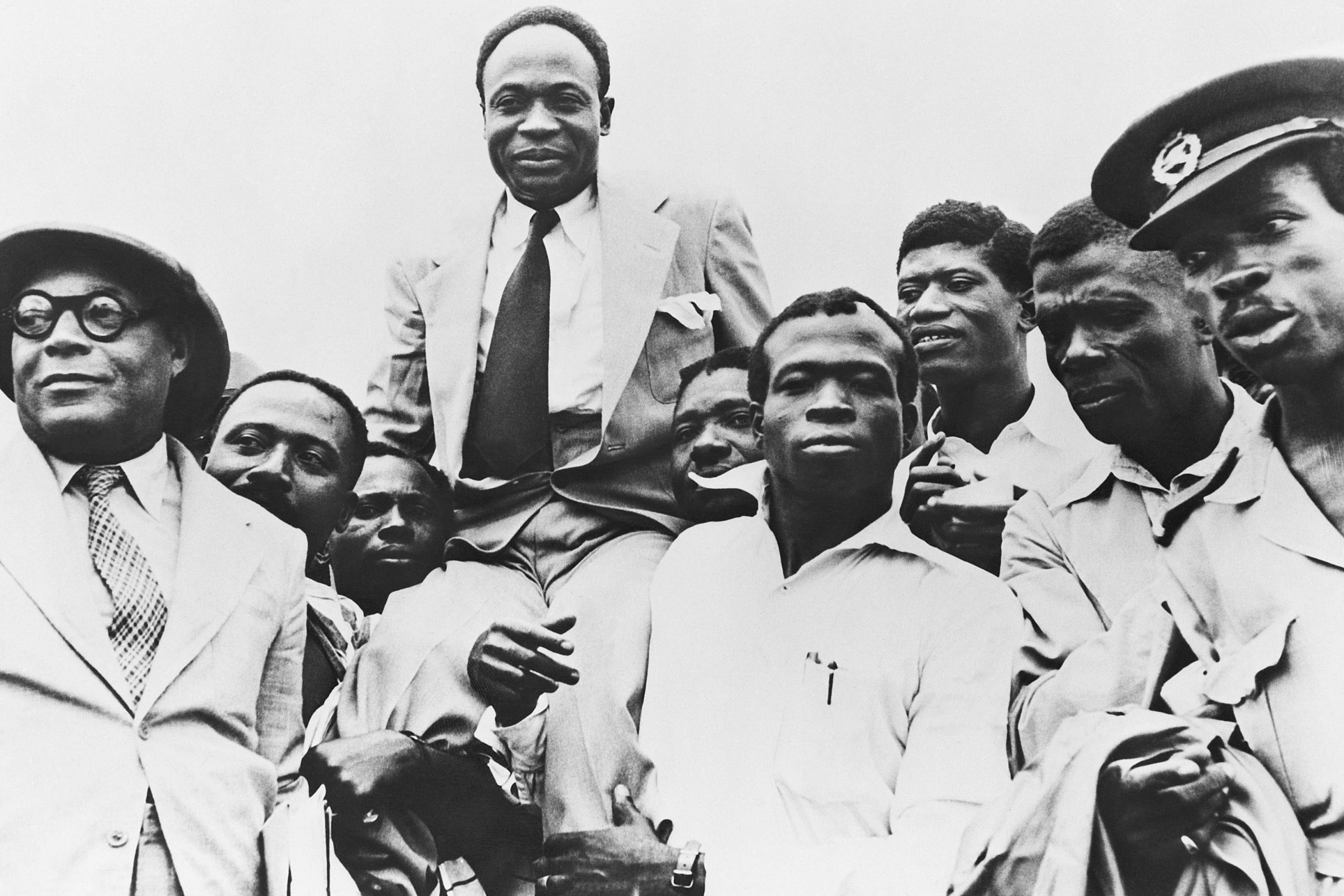Text Messages | The unifying power of sport
Political leaders such as Ghana’s Kwame Nkrumah realised early on that sport could unite a nation, possibly a continent, in throwing off the shackles of colonialism.
Author:
28 February 2019

It was the hand that broke hundreds of millions of hearts and shattered a continent’s dream. Unlike the infamous “Hand of God” that Diego Maradona deployed in 1986 to score a goal against England in that year’s football World Cup, this was a devilish hand used to prevent a goal from being scored.
The hand in June 2010 belonged to Uruguayan striker Luis Suárez, crammed together with his teammates in their penalty area as Ghana’s Black Stars swarmed over the South American team’s defensive bulwark. As the last team from Africa remaining in the competition, the Black Stars had the support – and the weight of expectation – of the whole of Africa. (Although cynics – realists? – might cite that Nigeria, ever envious of others’ success, might well not have been rooting for their fellow West Africans.)
At stake in the match against Uruguay was a place in the semifinals, a stage that no African team had ever reached. Already, there had been a first for the continent in that the tournament was held in South Africa, which meant also that support within the stadium was very much pro-Ghana.
A searing Ghanaian shot at goal was followed by tens of thousands in the stadium, who seemed collectively to take a breathless pause pregnant with expectation. They were waiting only for the ball to cross the line before erupting in celebration of Africa’s moment. A worldwide audience of hundreds of millions watched, too, their loyalties more divided, their partisanship more keenly delineated.
Dramatic and swift events are said to unfold in quite the opposite way for those involved in or witnessing them. Time freezes, they say; slow motion becomes actuality, rather than a device for later replay. It was in that way that the ball spiralled towards the Uruguayan goal, moving mesmerisingly towards it, but seeming never quite to be getting there. And then the ball was no longer proceeding on its stately and certain trajectory over the goal line and into the back of the net. A hand had reached out and deflected its course, pushed it in the opposite direction, away from glory, away from its manifest destiny of fulfilling a continent’s highest hopes.
Perverse realities
It mattered not that a penalty was awarded for the handball because, in the course of natural justice, Ghana should have taken the lead with a cleanly scored goal and, with only a few minutes remaining, would have advanced to the next stage. As it was, the penalty was missed and in a brutal twist of fate the match was decided by a penalty shoot-out that, obeying the perverse realities of sport, Uruguay won.
But why all this fuss about a mere football match and its result? Other than the ethics and justice issues at play, it is well to remember what football meant and means to Ghana and why its team are dubbed the Black Stars.
Ghana’s first prime minister and, later, first president, Kwame Nkrumah, was a remarkable visionary who used all available means to mobilise and unify his newly independent nation. It was he who realised the unifying power of sport – a trope that Nelson Mandela was to use to brilliant effect in supporting the 1995 Springbok rugby team in that year’s rugby World Cup held on South African soil – and so he got behind the Ghanaian national football team.
Nkrumah gave them a name derived from Marcus Garvey’s Black Star Line, one of Garvey’s attempts to set up an independent black economy within white capitalism. That Garvey strove to promote unity among the world’s black peoples and hankered after a black-run nation in Africa aligned further with Nkrumah’s nation-building efforts. Beyond those, Nkrumah intended Ghana to lead the liberation of the rest of the continent from its colonial chains, a project that was halted when he was deposed by a coup on 24 February 1966 while he was in Vietnam and China.
Nkrumah had survived several assassination attempts before his ousting. His legacy is possibly tainted by his declaration of a one-party state in 1964, of which he was life president (as well as of the party). But in a brief spell of years in the early 1960s, he wrote a number of key texts. They include Africa Must Unite, analysing the problems of what we now call the postcolony; Consciencism, which articulated the enormously complicated theory of decolonisation that had been developed by Nkrumahists (Fallists: this makes for intriguing reading!); and, perhaps most tellingly, Neo-Colonialism: The Last Stage of Imperialism, a title riffing on Lenin’s Imperialism, the Highest Stage of Capitalism, which was a scything attack on European and American economic presence and practice in Africa. It is in the introduction to the last that the quote below appears.
“The essence of neo-colonialism is that the state which is subject to it is, in theory, independent and has all the outward trappings of international sovereignty. In reality its economic system and thus its political policy is directed from outside.
“The result of neo-colonialism is that foreign capital is used for the exploitation rather than for the development of the less developed parts of the world. Investment under neo-colonialism increases rather than decreases the gap between the rich and the poor countries of the world.
“The struggle against neo-colonialism is not aimed at excluding the capital of the developed world from operating in less developed countries. It is aimed at preventing the financial power of the developed countries being used in such a way as to impoverish the less developed.”
